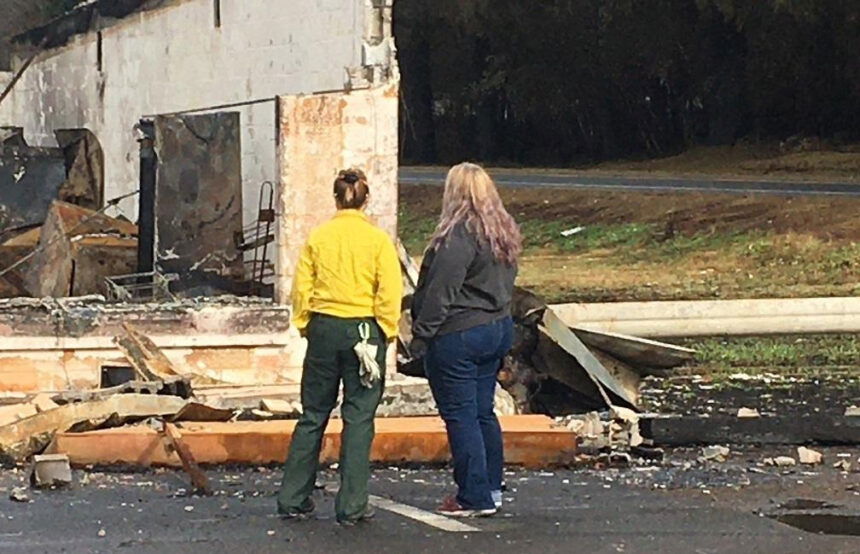Merkley bill would provide aid to families hit by natural disasters, economic crises

Starting at $2,000 a month, non-taxable
WASHINGTON (KTVZ) -- Sen. Jeff Merkley (D-OR) said Monday he has teamed up with Sen. Brian Schatz (D-HI) to introduce the Family Crisis Cash Assistance Act, legislation that would create a new, permanent program to help families struggling through a natural disaster or economic crisis with immediate cash assistance.
As the COVID-19 pandemic has made clear, direct cash provides families with immediate relief and gives them the flexibility to use the money wherever they face the most need—be that housing, food, health care, or other expenses.
“Our communities were already struggling in the face of this global pandemic when unprecedented wildfires hit and caused even more damage. The situation is nothing short of a crisis—families have lost loved ones, their homes, all of their belongings, and their jobs,” said Merkley. “When people lose everything, their needs are immense, and nobody knows better than they do what is most critical to get back on their feet. This bill would put cash in families' hands when they need it most to secure food, shelter, and other immediate needs.”
Due to climate chaos, the United States is being hit with more frequent and more severe natural disasters—including wildfires, hurricanes, droughts, and floods—every year, Merkley's office said in a news release, which continues below:
These extreme weather events claim lives and can plunge entire communities into financial ruin. Existing disaster recovery programs do not always reach low-income communities and communities of color, which are often among the hardest hit and suffer adverse impacts for years after a crisis.
For those already struggling, natural disasters lower credit scores and increase debt collections, bankruptcies, credit card debt, and mortgage delinquencies and foreclosures. Economic crises also cause lasting damage—with sudden wealth losses driving up poverty rates and disproportionately impacting younger, lower income, and minority households.
To address those challenges, the Family Crisis Assistance Act would provide cash assistance at $2,000 a month for an individual, $3,000 for a family of two, and $500 more per additional member of the family, capped at $4,000 a month and adjusted for inflation moving forward.
The assistance would not be taxable, nor can it be garnished, and the program would prohibit rules requiring work, participation in child support programs, an asset test, discrimination based on immigration status, or artificially limiting the length of eligibility.
The program would be administered by the Department of Health and Human Services, which would provide grants to states. States would then be asked to develop a distribution plan and would be responsible for disbursing cash assistance to families and individuals with incomes at 200 percent of the Federal Poverty Line or below through a mandatory funding mechanism.
The program would phase out assistance gradually, ending at 300 percent of the Federal Poverty Line.
Grants would be made available once one of the following automatic triggers is met:
- A sudden increase in the state or national unemployment rate—the bill applies the Sahm Rule, i.e., an increase in the three-month moving average (six-month moving average for states) of the national or state unemployment rate by 0.5 percentage points or more relative to its low during the previous 12 months;
- A 20 percent increase in state unemployment insurance claims over three months; or
- A significant natural disaster—like the devastating wildfires that have hit Oregon this year—defined as a Stafford Act major disaster declaration where individual assistance is authorized at the county or state level for households in the affected area.
The Family Crisis Cash Assistance Act is supported by Prosperity Now, Economic Security Project, Children’s Defense Fund, the NETWORK Lobby for Catholic Social Justice, Children’s HealthWatch, the Friends Committee on National Legislation, Congregation of Our Lady of Charity of the Good Shepherd - U.S. Provinces, National Advocacy Center of the Sisters of the Good Shepherd, Young Invincibles, Supporting Our Mothers Initiative LLC, Western Center on Law & Poverty, Global Women’s Strike, Women of Color/Global Women’s Strike, National Welfare and Caregivers Working Group, Every Mother is a Working Mother Network, Payday Men’s Network, Kids Forward, Greater Hartford Legal Aid, and Center for Popular Democracy.
For a copy of the bill text, click here.